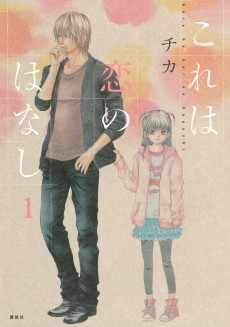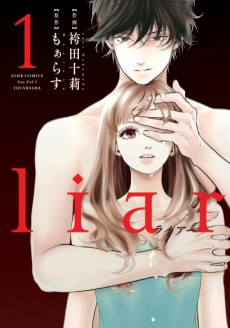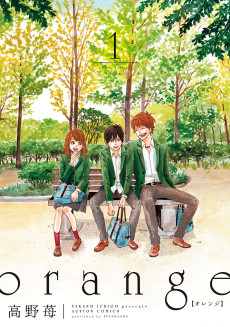ASPER KANOJO
STATUS
COMPLETE
VOLUMES
12
RELEASE
January 26, 2021
CHAPTERS
123
DESCRIPTION
Yokoi Taku has trouble getting along with people, so he moved to Tokyo as soon as he graduated from high school. He now lives alone, making a living by delivering newspapers and drawing doujinshi, though people totally ignore his non-erotic works. One day, a girl named Saitou Megumi suddenly shows up at his door, claiming that she came all the way from Tottori to meet him because she's a big fan of one of his doujinshi. It ends up that she has faced many hardships herself, and with no intention of leaving, she ends up living with him.
Note: Current chapter count is based on the original serialization. Several chapters were combined into 100 chapters in the physical release.
CAST
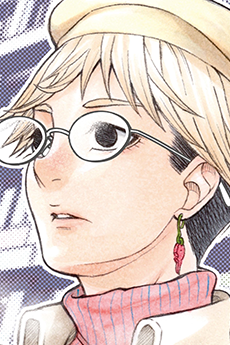
Megumi Saitou
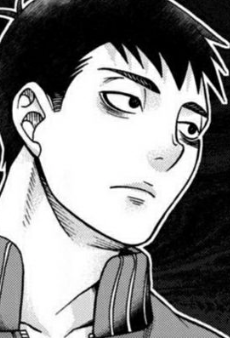
Taku Yokoi
CHAPTERS
REVIEWS

saulgoodman
80/100A relationship full of unpredictability, unconditional support and adaptabilityContinue on AniListStory
Yokoi Taku, a doujin artist and newspaper deliverer, lives quietly in his apartment. Knock knock, Yokoi opens the door to an unexpected visitor; Saitou Megumi. Moved by Yokoi's work depicting school bullying, Saitou came all the way to meet her idol and intends to live with him. As they coexist in Yokoi's rundown apartment, they learn more about each other.
- If you haven't figured it out by the title already, Saitou is diagnosed with Asperger Syndrome. The story depicts an array of challenges and situations she faces on a daily basis and how Yokoi learns to adapt and support Saitou. Mundane things, such as going to the bathhouse or walking past dogs, prove tedious. Brief conversations with strangers prove near impossible. Happy, tranquil situations will turn distressing and frightening in the next panel. To sum up this series in one word ... Unpredictable.
- Now, I don't possess extensive knowledge about mental illnesses or medication. But I can say that I'm impressed by this series' down-to-earth, detailed portrayal of them. Saitou's intense panics and thoughts and Yokoi's fumbling and worrisome nature over her shatters through my screen and invokes empathy in me, even though I can never fathom to imagine what being in their shoes is like.
- Yokoi and Saitou's relationship is one full of learning, adapting and empathizing. Similar to nursing an injured animal, it may seem that it's one-sided, but both parties do receive mutual support according to their needs. Yokoi receives psychological support and acceptance that she's never had before. Saitou receives someone. Someone, not really a lover, friend, or family; but someone who listens to him, reads his work, sleeps together with him, walks with him. And someone who provides ... special things, too.

Characters
-
Yokoi: An ordinary fellow. But his compassionate nature is unordinary. Taking in a complete stranger without any physical compensation. Going to extensive lengths to care for her. Researching her particular condition to further support and understand her. Truly, a reincarnated Buddha. But he has his own problems, too, which haven't been extensively revealed compared to Saitou. It'll be interesting as more is revealed. Has some quirky characteristics, too. Overall, a guy with a heart of gold.
-
Saitou: The Asperger's heroine of this series. She has a multitude of traumatic experiences and in dire need of mental support and love. Like Yokoi, I grew to care immensely for her. With only Yokoi to lend her a hand, she faces struggles wherever she goes. However, thanks to Yokoi, she steadily grows and improves. Though she still frequently experiences distress and guilt, we see her smile, laugh and experience new things with Yokoi. You can't help but root for her.
Art
-
The artstyle doesn't have much to be commented on. Does the job for a slice-of-life/drama series like this.
-
The series does well in artistically portraying the dark moments. The background is often tenebrous and the character expressions are grim. Sometimes they seem out of nowhere, giving a sense of shock and urgency.
Enjoyment
- An easy 10/10 in the enjoyment dept. The variety of situations the two encounter are fresh and very interesting to see how they'll play out. The humor often comes unexpected in the general gloomy mood, providing me frequent toothy grins. Most of all, I love seeing Saitou's situation slowly improve and these two learning more about each other.
Final Words
- If you're searching for a more grounded depiction of mental illness, drama and quirky relationships, then I don't think you'll be disappointed with Asper Kanojo. A series that will have your heart thumping and rooting for the protagonists.


Gummyfail
100/100I know a lot of people who want to die but don't. This review is about that.Continue on AniListThis review contains sustained discussion of suicidal ideation and its diverse causes. I will be speaking as the subject pertains to both the series and myself personally. I may risk spoiling elements of the plot for the sake of the discussion, however I do not believe this work to be one dependent on any sort of surprise or lack of incoming knowledge. That said, if you wish to avoid spoilers, please read up to chapter 63. I went into this essay wanting to speak more about the complexities of autism and c-ptsd, but those subjects are large and unwieldy, so they are mentioned but not explored to my satisfaction
Despite my belief that the series is ultimately hopeful, I would say that That’s My Atypical Girl is primarily about the urge to die. It’s about the circumstances that could make you want to die. It’s about your childhood, your parents, your history with school, your social webbing, your physical health, your home and the stability of your continued housing; it’s about the very structure of your brain and its chemistry and how all these things can affect your urge to die. It’s about how frequently you might think about dying. It’s about how casually you can imagine dying. It’s about how little you think of dying or how much. It’s about hearing someone you love or depend on saying they’re worried about you. It’s about hearing someone you love or depend on saying they want to die. Everything, every moment is tinged with these thoughts. It’s about how a lot of people live despite the constant urge to die. It's about the imperfect tools they use to stay alive. It’s about the lovers and family and friends and disorders that tugs us in one direction or another.
That was partially rhetorical flourishing for the sake of clarifying the heaviness that lurks in Atypical Girl, but it was to hopefully impart the understanding that this series is not about answers. Yes, the protagonist does have ‘answers’ to questions from his partner, but it's clear these answers are temporary and that the questions will shift and warp in tone and in weight. The answers only exist as momentary objects. This sort of ideological refuge-seeking can seem pessimistic out of context. In context, it can seem desperate and overwhelming. For people who want to die constantly, thousands of small, embarrassing compromises will be made for the sake of living.
Saitou Megumi (the lead woman) says her first thoughts of suicide began in primary school. Unlike her, I do not have clear lines of demarcation for those kinds of thoughts, but it can’t be very distant from my nightmares I had around age 6 or 7. Saitou Megumi endured abuse at home and at school. Her abuse was rooted in her father’s inability to accommodate her developmental disorder and the cruelty he fostered to compensate for it. Her abuse at school was similar, although it was inflamed by her own (justified) anger and her own (justified) violence. My home life was unstable, but my father was loving. My autism was caught in the light of ‘giftedness’ and encouraged as an asset. My father ensured my self-esteem was such that I honestly don’t remember many people trying to bully me until middle school. By the time high school rolled around I developed a particularly acidic shittiness that kept people from trying to be too mean to me directly (outside of those close to me and those I desired praise from). I’m drawing these lines of difference to better explain that despite significantly different circumstances, this is the first time I’ve seen a character as preoccupied with dying as I was in a very particular sense.
This preoccupation leads her to stalk a mangaka and show up at his doorstep. Yokoi Taku makes draws pornography to pay his rent and allow him time to write more serious works. The manga doesn’t present him as a genius artist, but he does fill his niches comfortably and the smallness of his career reflects the consciously small life he has cultivated. He has a part-time job where he is friendly with his co-workers but not especially close. He is polite to his family but tries to avoid them. His relationship with Megumi is built on the foundation of his conflict avoidance. He is an accommodater, and she is demanding and unpredictable. A more conventional direction to take this narrative would be crueler, more dismissive of these two as people. Their relationship is exceedingly fraught and complex. It would be very easy to call it unhealthy. It would be very easy to insist their co-dependence is something that shouldn’t exist.
This is where a conversation on the work gets complex. When you see a girl like Megumi, do you think that institutional medicine will help her? Do you have faith that perhaps a change of doctors or facilities can overcome her previous experiences? Do you think that healthy love can spring from care taking? Do you think that, if a person is sufficiently unstable, it is morally wrong for them to pursue affection? Do you think that the comfort afforded by Yokoi is something worth risking such an imbalanced relationship? Should Yokoi allow himself to be needed in such a fundamental way? Does Megumi have an obligation to live? These questions are not even considering the added complexities of her violent impulses.
It is so easy to diagnose facets of someone’s life, but those are just facets. To ignore one plane of a shape is to distort it. I don’t mean to say that humans are too complex to be scrutinized. However, I think the medical compartmentalization of the various corners of someone’s life can be exceedingly dangerous in certain circumstances, and conflating health and morality can be deadly. With Atypical Girl I find myself straddling arguments. I want to root for them, and I want to watch Megumi heal. I find myself confused as to whether or not I am finding comfort in a toxic relationship.
I find myself thinking about the woman I dated during what felt like a prolonged psychotic episode. We were both obsessive. She offered to pay my car off and got angry when I was uncomfortable. I got anxious one night and proposed. She was the first person I told about specific trauma. It wasn’t because I trusted her. I wanted an impossible closeness, so I tried to show all the scars and warping that came to mind. I wasn’t on any medication yet. I wanted to die all the time and the spikes of joy our interactions provided me were very different from the sustained comfort shown in Atypical Girl. I was obviously not a very good partner. I am unsure of how to maintain an appropriate distance in romance even now. Should I allow myself? I don’t know, but it isn’t something I want answered for me.
Part of my draw to messy relationships in fiction is to interrogate what I can tolerate and what I wind up defending. I am compelled to defend Megumi and Yokoi’s relationship because I know a couple of people like Megumi and I’ve watched them and failed to ever help them. In some ways I am probably more like Yokoi, but mostly because I’ve had a support network.
Megumi’s violence and her reactions to that violence overwhelm me. She thrashes about in situations where I just squirm. Her viciousness is set up as a litmus test for the reader. It is impulsive and often misdirected. Without the private look into her life that we are afforded, it would be unlikely that much of anyone reading would sympathize. She draws up wells of hatred from so many directions that it is hard to anticipate what could upset her. She reminds me of a cousin that I’ve cut out of my life. His anxiety produced violence towards strangers and weird, shitty jokes to me. He was possessive of his partners and had a complex relationship with his mother. I don’t know how to help him, so I prioritized myself. He will occasionally reach out to me, and I meet his outreach with silence and spend a large amount of time thinking about my decision. Part of why I root for Megumi certainly comes from my love for him and the bitterness of the situation.
Part of why I root for her is her honesty. This honesty is the skeleton of the narrative. She is honest in her anger and in her panic. She is honest when she needs comfort in a way I’ve seen countless people struggle to be. She asks for what she wants despite the anxiety of being a burden and that, in some ways, is enviable. This honesty is what paves the way for healing and a chance at genuine, lasting change. I don’t come away from Atypical Girl with answers to anybody’s problems, least of all mine. Rather I get a moment to admit to myself all of the pain is reasonable. I get to see someone want to die, while they fall in love. I get to see the nervousness of someone caring for them. I get an assurance that some of those I accidentally pull into my orbit, as I convince myself to stay alive, are excited to see the changes I’ve made over the years.
SIMILAR MANGAS YOU MAY LIKE
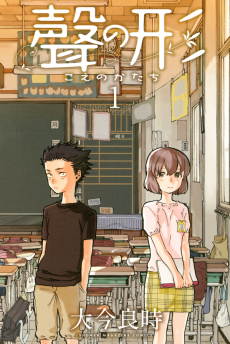 MANGA DramaKoe no Katachi
MANGA DramaKoe no Katachi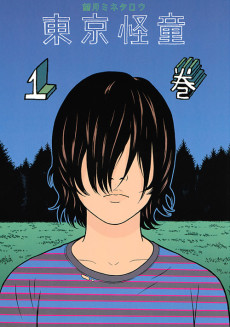 MANGA DramaTokyo Kaido
MANGA DramaTokyo Kaido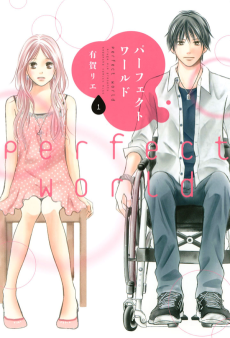 MANGA DramaPerfect World
MANGA DramaPerfect World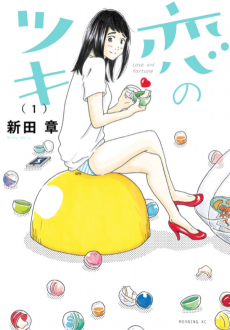 MANGA DramaKoi no Tsuki
MANGA DramaKoi no Tsuki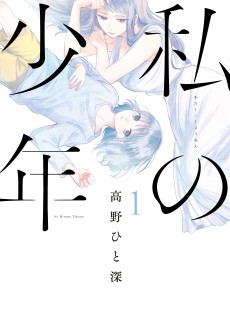 MANGA DramaWatashi no Shounen
MANGA DramaWatashi no Shounen MANGA DramaShunkashuutou Days
MANGA DramaShunkashuutou Days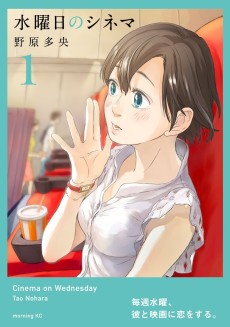 MANGA DramaSuiyoubi no Cinema
MANGA DramaSuiyoubi no Cinema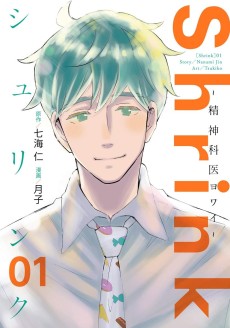 MANGA PsychologicalShrink: Seishinkai Yowai
MANGA PsychologicalShrink: Seishinkai Yowai
SCORE
- (3.9/5)
MORE INFO
Ended inJanuary 26, 2021
Favorited by 382 Users









